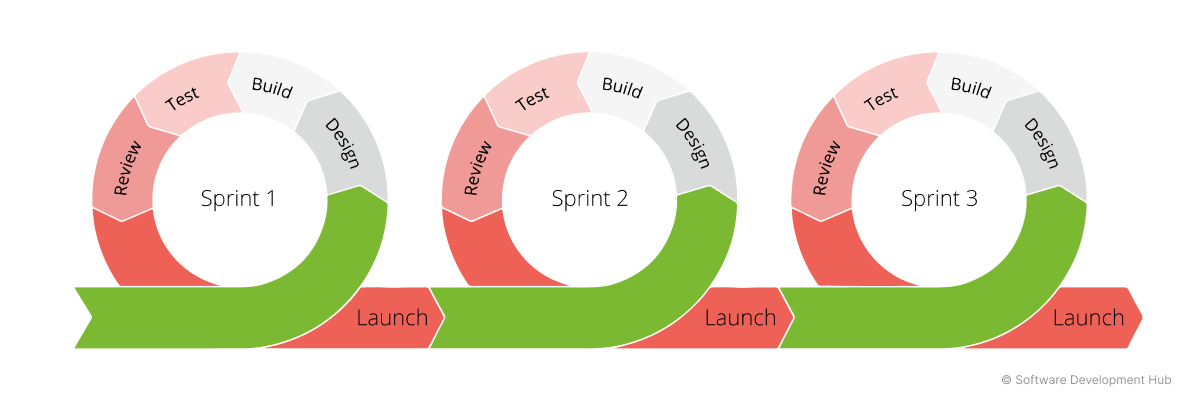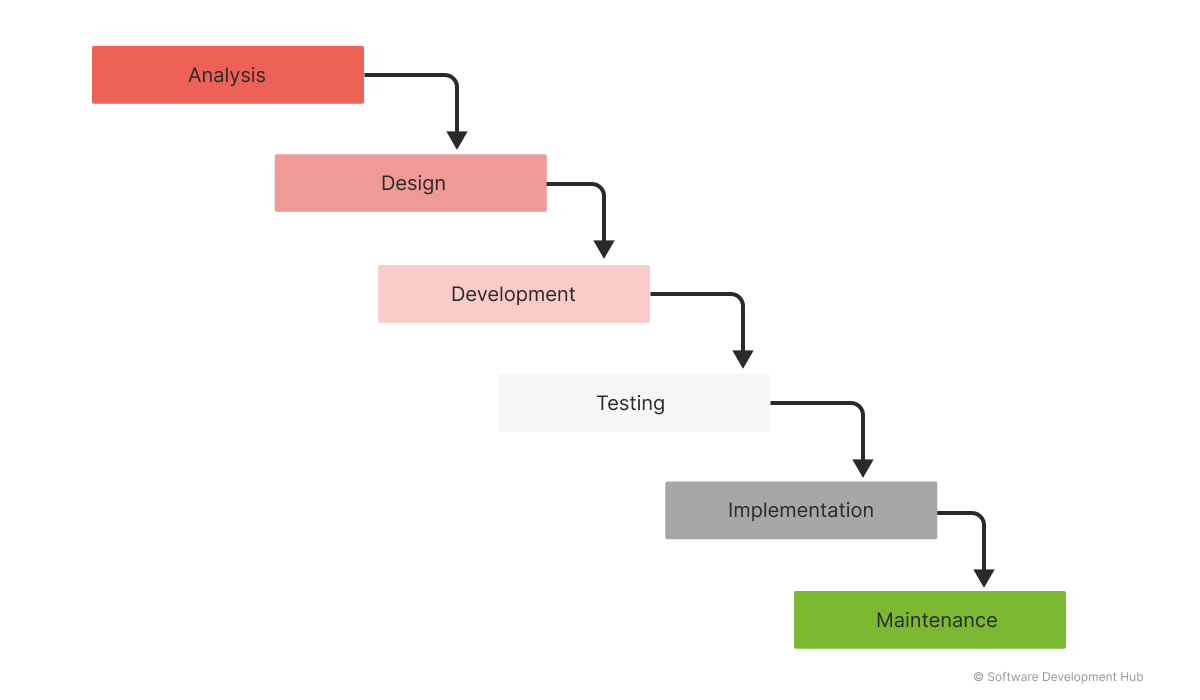Best Software Development Methodologies
Any work and any process becomes easier and clearer when you have a plan and a strategy of action. The same can be said about software development. If the methodology of working on a particular project is chosen correctly, it will be easier for developers and clients to find a common ground and create a high-quality product. Of course, there is no certain universal methodology. But if you understand the essence of each one, the choice will become obvious.
What are the Software Development Methodologies?
Any web product goes through many stages before consumers start using it. The development stage (and all that comes with it) is the most important one. To make this process more efficient and fast, development methodologies that are suitable for the project should be adhered to.
In other words, methodologies include a set of rules and techniques for managing the process of development. If you follow the instructions strictly, then the chance that the development will not satisfy the client or will be full of defects is very low.
That is why software development methodologies must be important for both the developer and the client. The total result depends on it.
The most popular software development methodologies
Today, the IT development field is more advanced than ever. There are many tools available to help you implement your ideas. Undoubtedly this is a big advantage.
The majority of methodologies can be referred to three basic development models:
- Waterfall — The sequential realization of each stage of development. That is, you cannot move to the next stage without completing the previous one.
- Iterative — This model allows you to build and test a product simultaneously. This gives the client more options to make changes in the project and get a well-tested product.
- Continuous — As you can understand from the name, this model provides uninterrupted development which helps you reduce unnecessary costs and make the development process more efficient and fast.
And now, let's take a look at the five best methodologies that are popular at the moment.
Read also: Agile vs Waterfall: Approaches to the Development of Software Products
Agile Development Methodology
This is a 'flexible' development methodology. It is ideal for customers who, in the initial stage, do not quite know what kind of end result they want to see. Therefore, after each stage, the customer can observe the result and understand whether it satisfies him or not.
Pros:
- Frequent meetings between the developer and the client, which allow them to map out a goal and move toward it
- Ability to test the product after each small step of the work
- It is easy to make changes to the project
Cons:
- Regular meetings with the customer and constantly changing requests can be time-consuming and confusing for developers
- Due to the minimal use of documentation in the project, there may be problems at later stages of development

Waterfall Development Methodology
As we mentioned above, the basic principle of this model is that you cannot move on to the next stage of development without completing the previous one. That's why this solution applies only when the client has clearly stated his desires and approved the timeline and budget for the development.
Pros:
- The rigid structure of the model helps developers stay on track
- Fixed budget with no additional costs
- All the smallest details of the project are already specified for each stage of development
Cons:
- Testing takes place at the last stage, so if there is a problem in the development, it will be discovered late
- A lot of documentation takes up development time
- It is not easy to make amendments to the project

Read also: What Does Project Manager Do at Each Stage of Software Development Process?
Lean Development
The Lean development methodology focuses on efficiency, continuity, and minimal waste. All of this is achieved through team members' communication to make important decisions. Such decisions help to avoid unnecessary work.
Pros:
- Developers are not burdened with documentation and unnecessary tasks, which allows them to focus on quality
- Product development time is quite short
- All unnecessary expenses are reduced
Cons:
- To implement a project using this methodology, you need an experienced development team
- Business Analyst takes care of all the documentation (this is a huge amount of work for one person)
Rapid Application Development
Several highly qualified development teams are involved in this development model. They work separately and then combine everything into one product. This is a very good solution if you don't have much time for development.
Pros:
- You get a finished product in a small amount of time.
- Testing is done with the client and takes place until he is satisfied with the result
- The quality of the solution is guaranteed
Cons:
- Large project budget, which will be spent on payments to several teams of developers
- Requires the finding of experienced specialists
Scrum Development
Scrum is a framework for project management commonly used in software development, although it has been used in other fields including research, sales, marketing and advanced technologies.
Pros:
- Efficient and cost-effective solution for small projects
- Quick identification and elimination of problems
- Constant communication with the client and regular meetings that guarantee the desired result
Cons:
- No clear timeline for the finish of the development
- Not suitable for complex and large projects
Looking for a reliable partner?
If you are looking for a reliable and experienced software development company, then you should consider Software Development Hub. Software Development Hub is a team of like-minded people leveraging extensive enterprise software development, web, and mobile engineering expertise. Contact us for a consultation!
Categories
Share
Need a project estimate?
Drop us a line, and we provide you with a qualified consultation.








